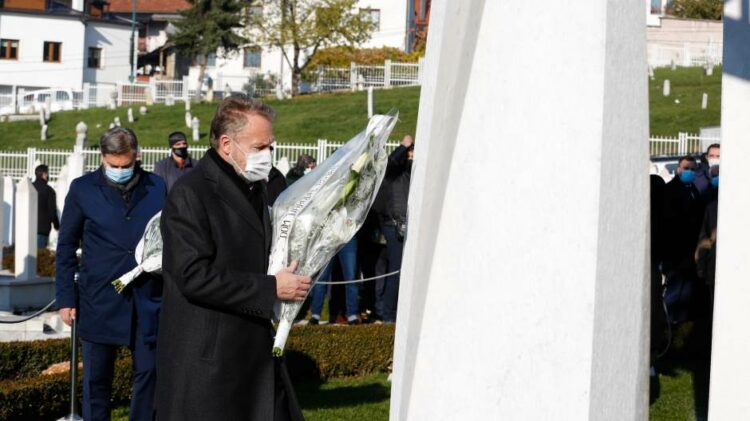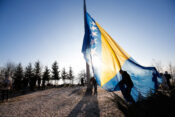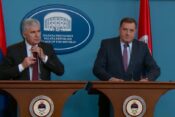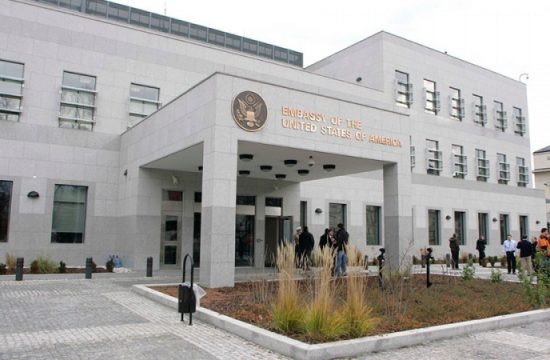
November 25 is one of the most important days for Bosnia and Herzegovina, as on that date the statehood and territorial integrity of the country were reconfirmed and Bosniaks were finally recognised as an ethnic group under the name ‘Muslims’, the leader of the strongest Bosniak party in the country and Deputy Chairman of the House of Peoples, Bakir Izetbegovic, said on Wednesday, congratulating Bosnia’s Statehood Day.
“Maybe people are not aware of how important this day is, but they will be. To have one’s own state is like when a family has its own home. To not have a state is like a family without a home. But those who have it sometimes don’t appreciate it enough,” the leader of the Party of Democratic Action (SDA) said.
Numerous officials laid wreaths at the grave of the first President of the Republic of Bosnia and Herzegovina, Alija Izetbegovic, marking the holiday this way. Among them were two of the three members of Bosnia’s Presidency, Sefik Dzaferovic and Zeljko Komsic, Deputy House of Representatives Chairman Denis Zvizdic and representatives of lower government levels.
The delegation also visited and left flowers at several monuments devoted to victims of WWII as well as the 1992-95 Bosnian war.
The Bosniak leader also used the opportunity to comment on a UN Security Council informal meeting that took place on Tuesday evening, where the situation in Bosnia was discussed.
The meeting was organised by the Russian Federation and the leaders of the main ethnic parties in the country were invited. Bosnian Serb leader Milorad Dodik and Bosnian Croat leader Dragan Covic took part but Izetbegovic turned down the invitation arguing that Bosnia’s state institutions were ignored.
Izetbegovic said the meeting was “very important” as “some have shown their real face, expressed their stances, and then faced a response.”
He referred to the speeches of Dodik and Covic who both presented their vision of Bosnia’s future – one complaining about the fact that the country’s election law does not allow ethnic groups to vote only for members of their own ethnic groups and the other about the fact that the two entities the country has been divided into were melting together over the years.
Bosnia’s top international official, High Representative Valentin Inzko, told the meeting that in fact, Dodik is abusing the 1995 Peace agreement, denying genocide and often talking about the Serb entity breaking away and joining neighbouring Serbia.
Dodik called Inzko a “monster.”
However, Izetbegovic noted that Dodik could be heard agreeing to take down a plaque honouring war criminal Radovan Karadzic and Covic publically disowning the idea of the creation of a third entity for Croats.
“It’s a good thing that I did not agree to attend a meeting organised in such a format which ignores and destroys the institutions of BiH,” Izetbegovic said.
“They should invite three members of the Presidency who represent this country an the peoples or invite the House of Peoples and not some asymmetric model that began in Zagreb, Belgrade and now Russia went along with it,” he said.
He said that everybody was taught a lesson yesterday and that Valentin Inzko presented the situation in Bosnia.
Izetbegovic said he wrote in a letter he sent to the U.N. Security Council about the blockades in Bosnia, the genocide denial, the disrespect for court rulings on war crimes and the glorification of war criminals, adding that many at the Council did not know and probably could not believe that this was happening.
He added that he informed the participants about all of this in his letter but that Inzko was a much better ‘lawyer’ representing Bosnia at the meeting.





